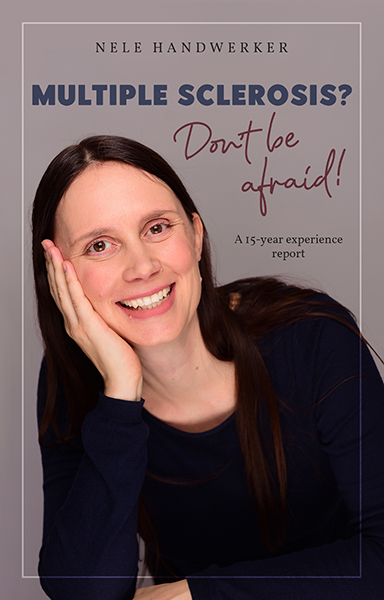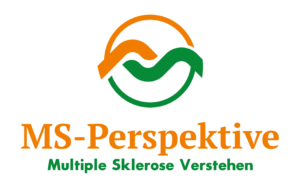This time Mireia Sospedra is my interview guest and we are talking about Nourand, an information plattform for multiple sclerosis patients who are looking for trustworthy information about a healthy diet. One of the things a person affected by MS can influence itself is food – what to eat and how to prepare it. And the more we are learning about the gut microbiome and central nervous system interaction, the more relevant it seems to take care of eating healthy. But what is healthy? What makes sense and which alleged facts have no scientific basis?
Klicken Sie auf den unteren Button, um den Podcast zu laden.
Table of Contents
Introduction – Who is Mireia Sospedra?
I was born and grew up in Barcelona, where I also studied Biology and pursued my PhD in autoimmune diseases.
After my PhD, I worked for two years as post-doctoral fellow in Paris, and afterwards, in 2001, I decided to further build my training in translational immunology in the United States. I moved to the National Institutes of Health (NIH), where I started working on multiple sclerosis. This disease has subsequently been the focus of my research until now. During my post-doc in the USA, I met my husband, who is German. We got married in 2004, in 2005 we returned to Europe, and in 2006 we got our son. Since we are back in Europe, we have lived and worked in Hamburg for 5 years and for the last 12 years in Zurich.
As you can imagine after listening to my trajectory, traveling and discovering new places is something I love, as well as cinema, which is another of my great passions.

Personal motivation for your career choice?
In this regard, I have to admit that my career is more the result of having taken advantage of the opportunities that have come my way than of having a well-designed plan. A mixture of work, good decisions and good luck.
About Nourand and its Purpose
Can you introduce us to Nourand and its mission in supporting individuals with multiple sclerosis (MS)?
Nourand shall be a meeting point for people interested in nutrition and multiple sclerosis, where to find detailed, updated, rigorously scientific and understandable information.
Different from medicines, which can only be purchased by prescription, food, diets or nutritional supplements are available to everyone without any prescription or even supervision.
What may be seen as an advantage for some, can also generate stress and uneasiness for others since the amount of information is unlimited and sometimes contradictory.
Nourand was created with the aim of guiding people, who are interested in nutrition and multiple sclerosis, and to provide quality information and training supervised by experts.
This is a bit formal and more or less what is on the website. I would probably tell it as a more personal story. Your interest in science communication, the findings about the role of gut microbiota and nutrition, your subsequent master in this area, and the positive experience of giving an abbreviated version as lectures to MS patients via a Spanish MS Society (i.e. Nutrinformate), which created a lot of interest.
How does Nourand aim to make nutrition-related information accessible and understandable for individuals with MS?
In order to make nutrition-related information accessible and understandable for individuals with MS, Nourand provides most of the information through four different sections:
- The first one is a basic course with general information about Nutrition and multiple sclerosis.
- The second section are the monographs, in which topics of interest are addressed in more detail.
- The third section are the nutrient Sheets in which concise information about Nutrients is provided.
- And the fourth section is the News Blog, in which the main scientific findings, particularly the ones that are recent/new, on nutrition and multiple sclerosis are reported in an understandable way.
All the information provided in Nourand is scientifically based and is offered in a didactic, easy-to-understand and accessible way so that everybody can follow it regardless of their previous knowledge on the subject.
Nourand also features two additional sections that go beyond providing information about nutrition.
The section „your experience” is a section, where everybody can not only share their testimony with the Nourand community but also contribute to an international database.
This database will collect data through anonymous questionnaires and shall allow us to assess the advantages and disadvantages of certain nutrients on the main symptoms of multiple sclerosis.
And finally, the section resources is a section, in which you can find information about other subjects such as mindfulness, yoga or physical exercise that can also contribute to improving your well-being.
Exploring the Ten Main Points of Nourand
Let's start with the basics. Could you provide an overview of the fundamental concepts related to nutrition and MS covered on Nourand?
The ten main points that you refer to are the ten subjects covered by Nourand in the basic course.
In the first chapter, we clarify basic concepts such as the difference between NOURISHMENT and Nutrition or between food and nutrients, and also introduce the main systems that are involved in nutrition, the digestive system, the circulatory system, the urinary system, the immune system, the nervous system and the endocrine system.
The digestive system is a complex part of our body. How does Nourand break down this complexity to help individuals better understand its role in MS?
In the second chapter of our basic course, we try to break down the complexity of the digestive system by explaining first the anatomy of the different parts of the digestive system and then what exactly happens in each of these parts from the moment the food enters the oral cavity until stool is excreted through the anus (or rectum).
Beyond absorption, what other aspects of nutrients does Nourand discuss, and why are they important for individuals with MS?
In the third chapter of Nourand, in addition to explain what happen with the nutrients once they are absorbed in the gut, we also provide detailed information and recommendations. We explain for example why it is recommended to consume complex carbohydrates, how to combine food to get all amino acids necessary to synthesize proteins, why the saturated fat is unhealthy or why water and iron are so important and how much we should consume. This information is relevant for everybody whether she/he is affected or not by MS.
The gut is often referred to as our second brain. How does Nourand explore the connection between the gut and MS?
In the fourth chapter of the basic course, we talk about the gut as our second brain and about the gut-brain axis. We show the complexity of the gut, which is not only a digestive organ but can also be considered an endocrine, immune and microbial organ. In order to control all these functions, the gut contains the enteric nervous system with a very high number of neurons that some people consider a second brain. We further describe in detail the enteric nervous system and its connection with the brain. Enteric nervous system and central nervous system share neurotransmitters what render the communication between them very easy. Food, hormones or bacteria in the gut can influence the production of neurotransmitters in the enteric nervous system and the information that arrives to the brain affecting the sub-conscience and our perception of stress, pain, emotions or fatigue. Alterations in the microbiota can influence the sub-conscience, and since MS patients often have alterations in the gut microbiota, this imbalance may be related to important symptoms, which they often from suffer such as fatigue or depression.
Could you share insights into how Nourand delves into the role of the gut microbiota in relation to MS?
In the fifth chapter of Nourand, we describe in detail the gut microbiota, we explain evidence suggesting an alteration of the gut microbiota in MS patients and also the different mechanisms how gut microbiota might contribute to the development of MS. We further mention strategies to influence gut microbiota including biotics, prebiotics, probiotics, paraprobiotics, symbiotics and postbiotics as well as fecal transplantation.
The immune system plays a crucial role in MS. How does Nourand explain the connection between the immune system and nutrition in MS?
As you mention the immune system and in particular neuroinflammation play crucial roles in MS. Neuroinflammation induces demyelination and as consequence of demyelination neurons die, which leads to neurodegeneration. Some nutrients have anti-inflammatory effects and promote for example the development of regulatory immune cells. Nutrients can be neuroprotective and can even promote remyelination. Nutrients with these properties that are able to cross the blood brain barrier are therefore without any doubt very interesting for people affected by MS.
Nourand discusses the impact of sex hormones. Could you provide an overview of this topic and its relevance to individuals with MS?
MS is much more frequent in females that in males, and estrogens appear to play a role in increasing the risk while testosterone reduces it. It has also been shown that sexual hormones can influence the development of MS by affecting the gut microbiota. In animal models, it has been shown that testosterone promotes a gut microbiota that protects from autoimmunity.
Exploring the core of MS, what insights does Nourand offer about the etiology and pathogenesis of the disease?
In the eighth chapter, we discuss in detail the main evidences that support the role of the genetic background and environmental factors in MS as well as the main pathogenic mechanisms that have been proposed. We also introduce another important aspect that is related to the complex etiology and pathogenesis of MS, that is the high heterogeneity of this disease with respect to clinical presentation, imaging, pathology and response to treatment, which often complicates patient management.
Nutrients are a central theme. How does Nourand guide individuals on the role of specific nutrients in managing MS symptoms and activity?
In chapter 9, we talk about different nutrients including vitamins, antioxidants, fat, salt, milk, fiber and probiotics. For all of them we describe their mechanism of action in our body, which food contains the nutrient, doses and supplements for the general population and MS patients, as well as evidence supporting a role in MS. W We always finish with a general recommendation for people affected by MS.
Diets can play a pivotal role. Could you share an overview of how Nourand explores different diets and their potential impact on MS?
In chapter 10, we mention different diets including the Mediterranean diet, caloric restriction diets, paleolithic diet, ketogenic diet and intermittent fasting. For each diet we summarize what it recommends regarding which food to eat, how much energy to ingest, when to eat, its mechanism of action and finally evidences supporting a role in MS. Also, as with nutrients, we always finish with a general recommendation for people affected by MS.
Questionnaires and Interactive Learning within Nourand
Each main point on Nourand ends with a questionnaire. How do these questionnaires enhance the learning experience for users and how do you use the results?
We think that these questionnaires can be useful to fix concepts. The idea is to check the video again whenever one has doubts about certain points.
We are not going to analyze the results The questionnaires are only for personal use.
User Engagement and Future Plans for Nourand
How can individuals get involved or engage with the Nourand community beyond the basic course?
By a subscription of 50 euros per year everybody can have access to the entire content of Nourand, including monographs, nutrient factsheets, news blog and resources. In addition, subscribers can participate in the section „Your experience“, in which subscribers can share their personal experience with the Nourand community via two independent and complementary ways.
- The first way that has the objective to develop knowledge about nutrition and multiple sclerosis. It consists in filling out a questionnaire, which is completely anonymous and which allows us to compile demographic and clinical information as well as information about possible supplements that you take and which diet you may follow. Thanks to the fact that Nourand exists in two languages, English and Spanish, and hopefully soon also in German, we will hopefully reach a large number of patients throughout the world, which offers us the unique opportunity to generate valuable data about nutrition and MS. These data shall be used to create an international database, which will help to assess the advantages and disadvantages of specific nutrients and diets in multiple sclerosis. The collected data and results will be shared every six months on our website with the Nourand community.
- The second way how subscribers can share their experience about nutrients and diets and to help other members of the Nourand community is more direct and consists of sending us an e-mail and explaining everything related to nutrition that they think may be useful for other persons affected by multiple sclerosis and that they wish to share.
Supporting the MS Community
In what ways do you believe Nourand can positively impact the lives of individuals living with MS?
I think that nutrition, diets and supplements play an important role in our well-being, and particularly for persons with MS they offer the opportunity to contribute positively to numerous aspects of MS. With Nourand, individuals living with MS will only be informed and learn about nutrition and MS but also understand enough in order take informed decisions themselves. This is very important since nutrients, diets or supplements are available without prescription and also because it allows them to judge the vast amount of information that is available, for example on the internet, and take their own informed decisions.
What message would you like to share with people affected by multiple sclerosis who are interested in exploring the connection between nutrition and MS through Nourand?
Nourand can help people affected by MS to better understand their disease, how the digestive-, immune- and nervous systems work and interact, advantages and disadvantges of diets, foods and nutrients in a simple way and from the hand of experts in order to be able INCORPORATE nutrition into the management of their disease.
Finally, where can our audience find Nourand and begin their journey of discovery and empowerment in nutrition and MS?
Many thanks to Mireia and everybody who helped to create the scientific facts for a healthy diet. I think it is always great to take an active part in influencing the long-term prognosis of the disease and use as many options as possible to do so.
See you soon and try to make the best out of your life,
Nele
For more information and positive thoughts, subscribe to my newsletter for free.
Click here for an overview of all podcast episodes published so far.

And at many more places.
* This text contains affiliate links. This means that I get a small compensation if you buy the product recommended by me through the link. For you nothing changes in the price of the product. And it helps me to pay for the blog and to write new posts.










